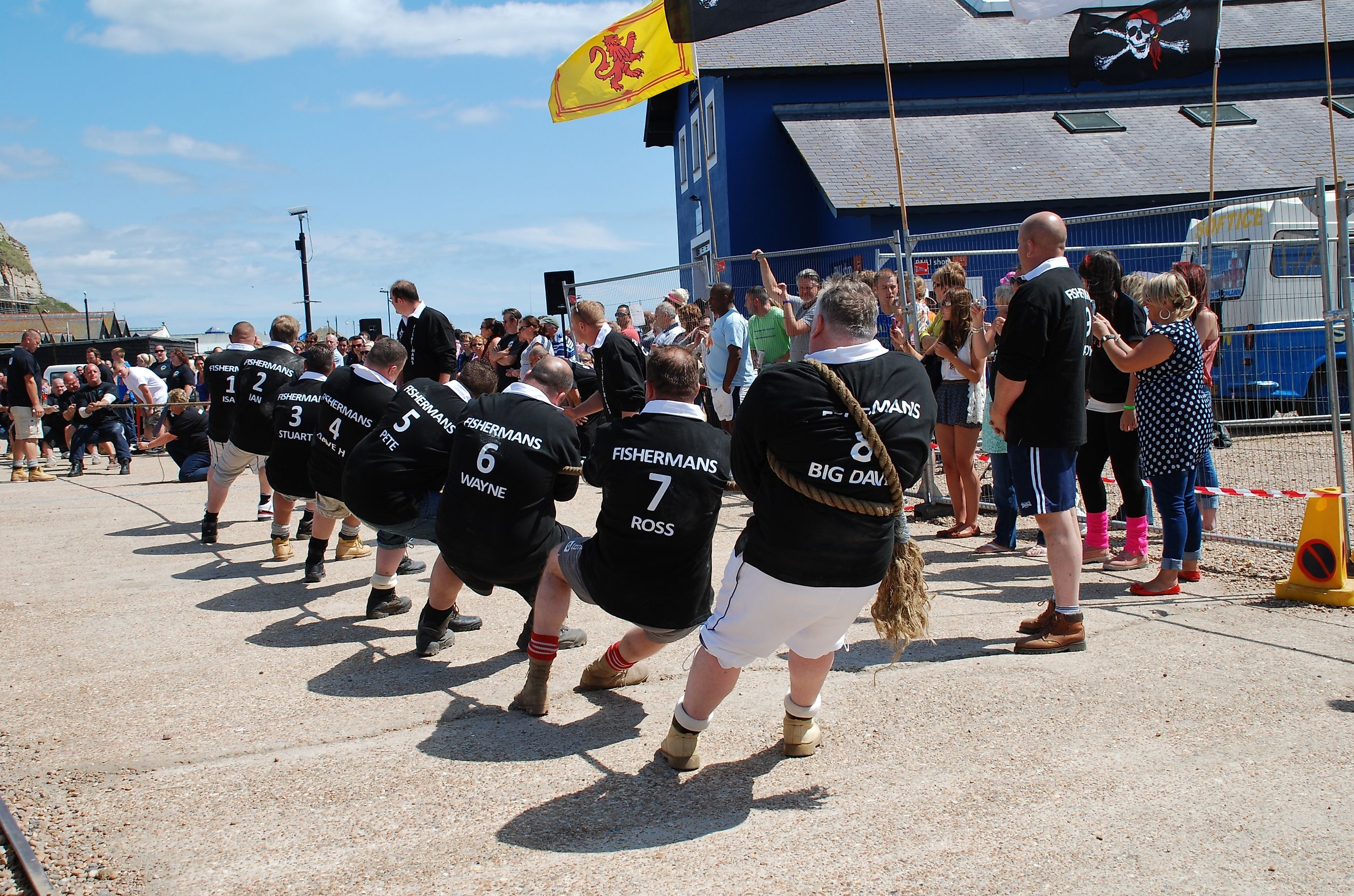
10 Sports That Used To Be In The Olympics
During the inaugural 1896 Olympics in Athens, athletes from around the world came together to participate in the program’s nine sports. Since then, the list of sports has grown, now including around 40 sports practiced during the games. Of these sports, however, several did not stand the test of time. Tug of war, motorboating, croquet, Jeu de Paume, basque pelota, polo, rackets, cricket, and lacrosse, although originally in the famed Olympic Games, have since been removed from the schedule.
Tug Of War
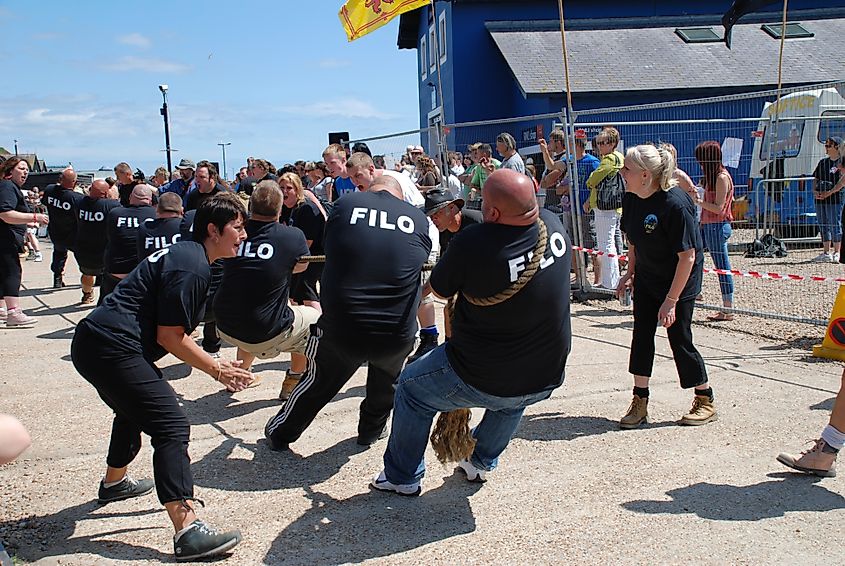
Tug of War was an Olympic sport in every Summer Olympics from 1900 to 1920. Countries could enter multiple teams, allowing them to win multiple medals from the competition. For example, the United States won all three medals in 1904 and Great Britain won all three in 1908. During its existence in the Olympics, tug of war was part of the athletics program, although the International Olympic Committee now considers it a separate sport. In 1920, the IOC cut tug of war as well as 33 other sports from Olympic programming after deciding that there was an excess of sports and participants.
Motorboating
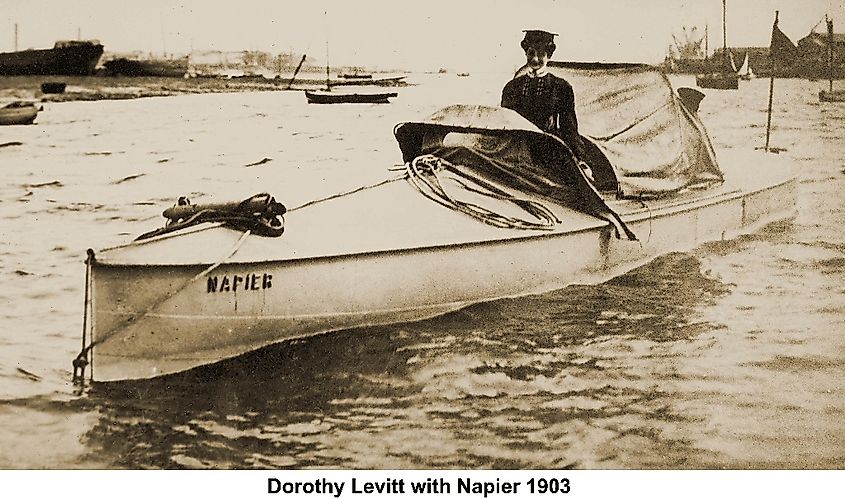
Dorothy Levitt won the first Harmsworth Cup, driving the Napier motor yacht in 1903.
Motorboating was featured in the Olympics twice, once as a demonstration sport in 1900 and again as an official sport in 1908. The event required competitors to do five laps around an 8 nautical mile course. There were three different categories as well: The open, 60 foot, and eight meter. France won the open category, while Great Britain won the 60 foot and eight meter. The International Olympics Committee decided after 1908 to remove motorboating from the Olympics programming, as they believed that motorsports did not have a place in the Olympic Games.
Croquet
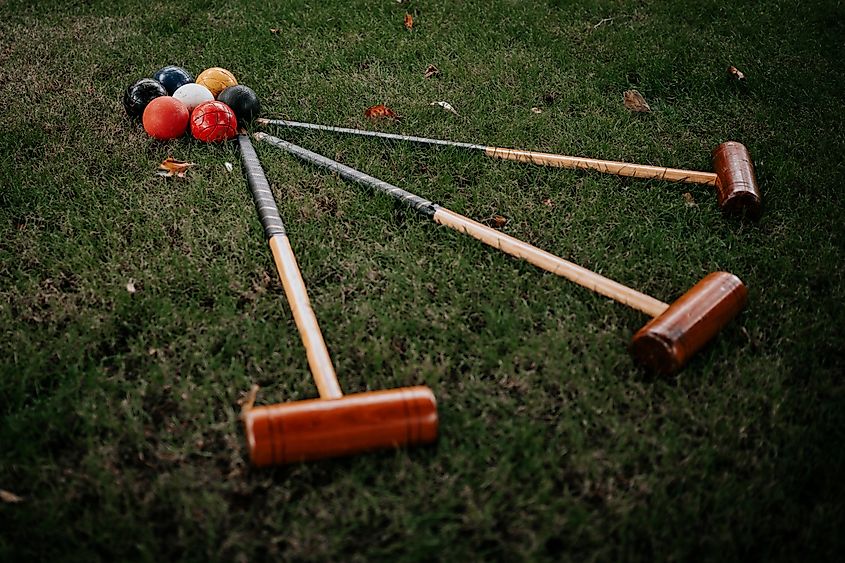
Croquet was in the Olympics just one time, in the Paris 1900 Olympic Games. There were seven men and three women participants, with this being one of the first times that women took part in the Olympics. There was a competition between singles and doubles. France won all of the medals in all three events, with Gaston Aumoitte and Chrétien Waydelich winning the singles, while Gaston Aumoitte and Georges Johin won the doubles. The International Olympic Committee decided to cut croquet from official programming afterward due to a lack of spectator interest, as only one spectator attended the event.
Jeu de Paume
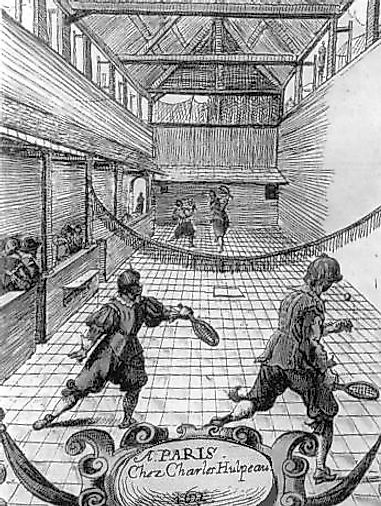
Jeu de Paume, also known as “court tennis” or “real tennis”, is a ball-and-court game resembling indoor tennis and was on the Olympics programming as an official sport in the 1908 London Olympics. In the 1908 Olympics Report, Jeu de Paume was actually documented as being simply, “tennis”, while tennis was marked as “lawn tennis”. The Olympics hosted the competition at the Queen’s Club in West Kensington, London, with Jay Gould of the United States winning the gold medal and two British athletes, Eustace Miles and Neville Lytton, winning the silver and bronze respectively.
Basque Pelota
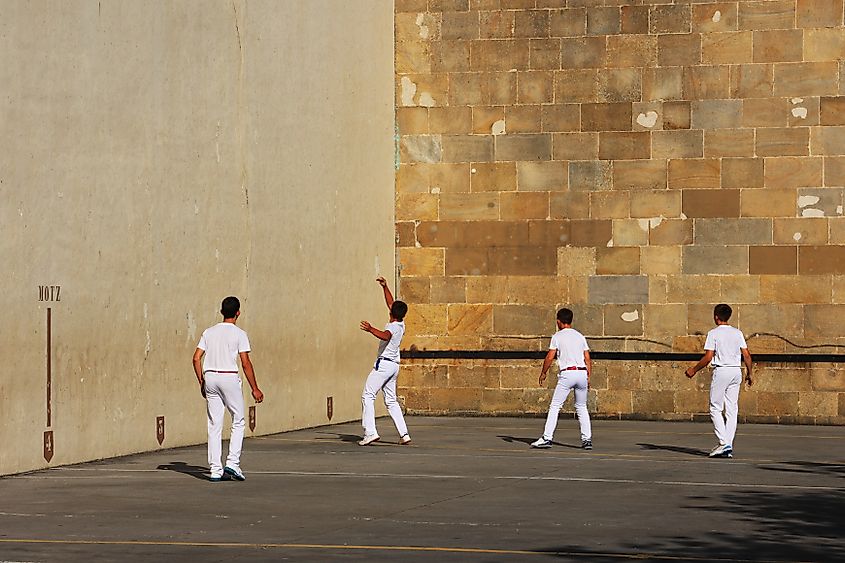
Basque pelota was an official Olympic game in the 1900 Olympic Games and was practiced as a demonstration sport in 1924, 1968, and 1992. The game, widely popular in Spain and parts of France, involves hitting a ball against a wall with a racket, hoping that the competitor’s opponent will not be able to return the ball. Speeds can reach up to 360 kilometers (224 miles) per hour, making it one of the fastest sports in the world. Only Spain and France competed in the 1900 Games, with Spain coming in first.
Polo

Polo was officially part of the Olympics in 1900, 1908, 1920, 1924, and 1936. During the 1936 final, Argentina won the gold after performing in front of a 45,000-person crowd. John Wodehouse, representing Britain, was the best polo player in the Olympics, earning a silver medal in 1908 and a gold in 1920. Polo declined in popularity around the start of World War II due to logistical and financial challenges in competing. The International Olympic Committee voted for it to be categorized as a sport in 1996, however.
Roque
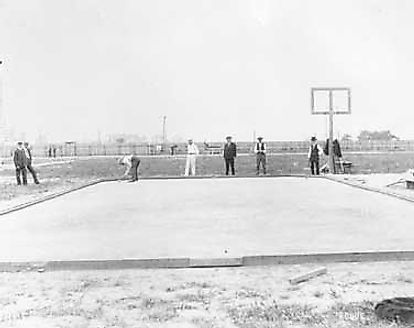
Roque was present only once in the Olympics: during the 1904 Olympic Games in St. Louis. Roque is similar to croquet but played on a hard surface. Four participants registered in the event, with each competing against their opponent twice in a double round-robin style. Charles Jacobus won gold, Smith Streeter won silver, and Charles Brown won bronze. All four of the event’s participants were American, so perhaps unsurprisingly, the United States won all three medals in this event.
Rackets
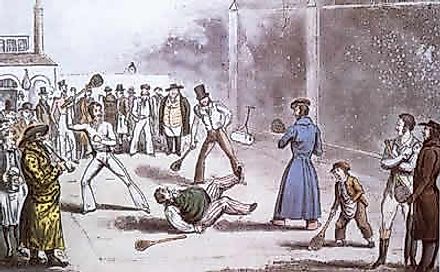
Rackets, an early version of modern-day racquetball, appeared solely in the 1908 London Olympics. There was both a singles and doubles event and seven participants enrolled in the competition, all seven being British. Evan Noel won gold in the men’s singles, while Vane Pennell and John Jacob Astor earned gold in the doubles. One player, Henry Leaf, was forced to forfeit in the final due to a hand injury, making Evan Noel the winner on a walkover. Although Rackets has never reappeared in the Olympics, squash, a similar sport, will be on the Olympic Games schedule in 2028.
Cricket
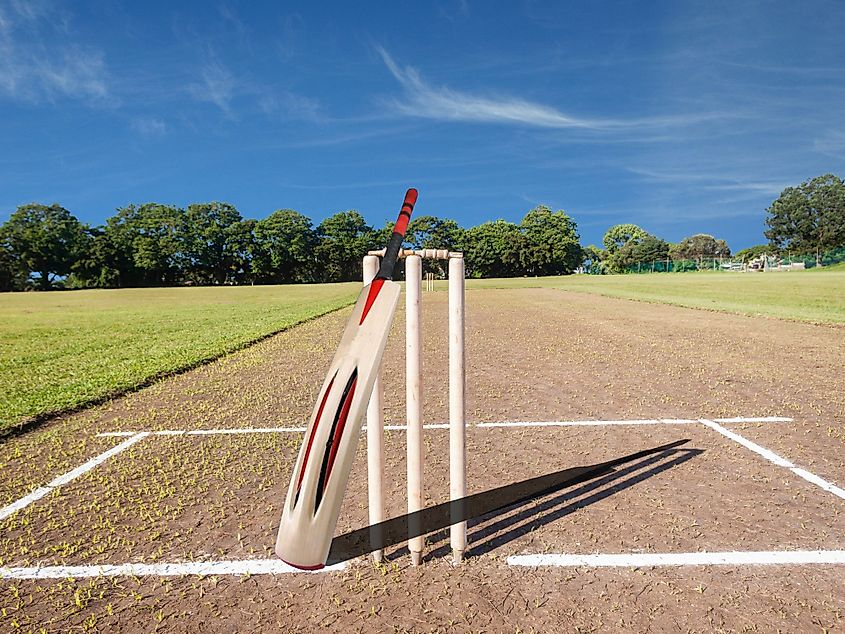
Although cricket is a fairly popular sport in various parts of the world, it only appeared in the 1900 Olympic Games. It was also supposed to be part of the 1896 Olympic Games in Athens as well as the 1904 Games in St. Louis but had to be canceled both times due to a lack of entries. Great Britain and France were the only two registered competitors in 1900, with Great Britain winning by 158 runs. After over a century, cricket will return to the 2028 Los Angeles Olympics as an official sport.
Lacrosse
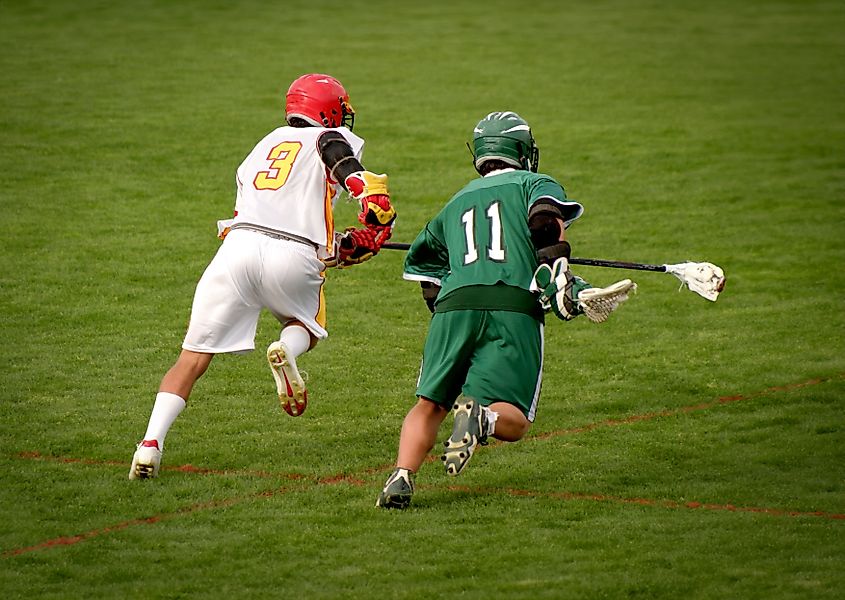
Lacrosse was an official sport in the Olympics in only 1904 and 1908, although it was also a demonstration sport in 1928, 1932, and 1948. In 1904, two Canadian teams and one United States team competed in the event, while in the second year, just one Canadian team and one British team competed. Canadian teams won the event on both occasions. In 2018, the International Olympic Committee gave World Lacross a provisional status, later approving it to return to the Los Angeles Olympic Games in 2028.
The removal of these sports from the Olympics cannot be simplified down to one reason. Some were removed due to declining popularity, while others were eliminated due to insufficient spectator interest or team participation. While most of these sports may have had their heyday, a few on this list, such as cricket and lacrosse, have received enough international support to earn a second chance in the games. With supporters advocating for the return of other sports on this list, it remains to be seen if any others will make a comeback.











